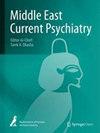新诊断女性乳腺癌患者创伤后应激症状及其风险因素的前瞻性纵向研究
IF 1.6
Q3 PSYCHIATRY
引用次数: 0
摘要
创伤后应激症状是女性乳腺癌患者最常见的心理疾病之一,但却未被认识到。然而,有关尼日利亚女性乳腺癌患者创伤后应激症状的发展轨迹及其风险因素的前瞻性研究并不充分。本研究旨在确定新确诊的女性乳腺癌患者创伤后应激症状的发生率和风险因素在 6 个月内不同时间段的变化情况。这是一项前瞻性纵向研究,采用系统随机抽样方法,选取了 183 名新确诊的女性乳腺癌患者。研究人员对参与者进行了六项目事件影响量表、疼痛视觉模拟量表、癌症治疗功能评估(乳腺)和社会人口学问卷调查。在基线、3 个月和 6 个月时,创伤后应激症状的发生率分别为 46%、31% 和 22%,表明创伤后应激症状随着时间的推移有所下降。在 6 个月的最终评估中,确定的创伤后应激症状风险因素包括:宗教信仰、治疗的可及性、疾病认知、化疗和生活质量。创伤后应激症状在新确诊的女性乳腺癌患者中很普遍,因此有必要对这些女性进行定期筛查,以便及早进行心理社会干预,取得更好的治疗效果。本文章由计算机程序翻译,如有差异,请以英文原文为准。
A prospective longitudinal study of post-traumatic stress symptoms and its risk factors in newly diagnosed female breast cancer patients
Post-traumatic stress symptoms are one of the most commonest, but un-recognized psychological morbidity found in female breast cancer patients. However, there are insufficient prospective studies concerning the trajectory of post-traumatic stress symptoms and their risk factors in Nigerian women living with breast cancer. To determine the changes in the prevalence and risk factors of post-traumatic stress symptoms among newly diagnosed female breast cancer patients across different timelines over 6 months. This was a prospective longitudinal study of 183 newly diagnosed female breast cancer patients selected using a systematic random sampling method. The Six-Item Impact of Events Scale, Visual Analogue Scale of Pain, Functional Assessment of Cancer Therapy-Breast, and a Socio-Demographic questionnaire were administered to the participants. The prevalence of post-traumatic stress symptoms was 46%, 31%, and 22% at baseline, 3 months, and 6 months respectively, indicating a decline in post-traumatic stress symptoms over time. In the final assessment at 6 months, identified risk factors of post-traumatic stress symptoms were: religiosity, accessibility to treatment, illness perception, chemotherapy, and quality of life. Post-traumatic stress symptoms are prevalent in newly diagnosed female breast cancer patients, there is a need for regular screening of these symptoms in these women to allow for early psycho-social intervention, and better treatment outcomes.
求助全文
通过发布文献求助,成功后即可免费获取论文全文。
去求助
来源期刊

Middle East Current Psychiatry
Medicine-Psychiatry and Mental Health
CiteScore
3.00
自引率
0.00%
发文量
89
审稿时长
9 weeks
 求助内容:
求助内容: 应助结果提醒方式:
应助结果提醒方式:


